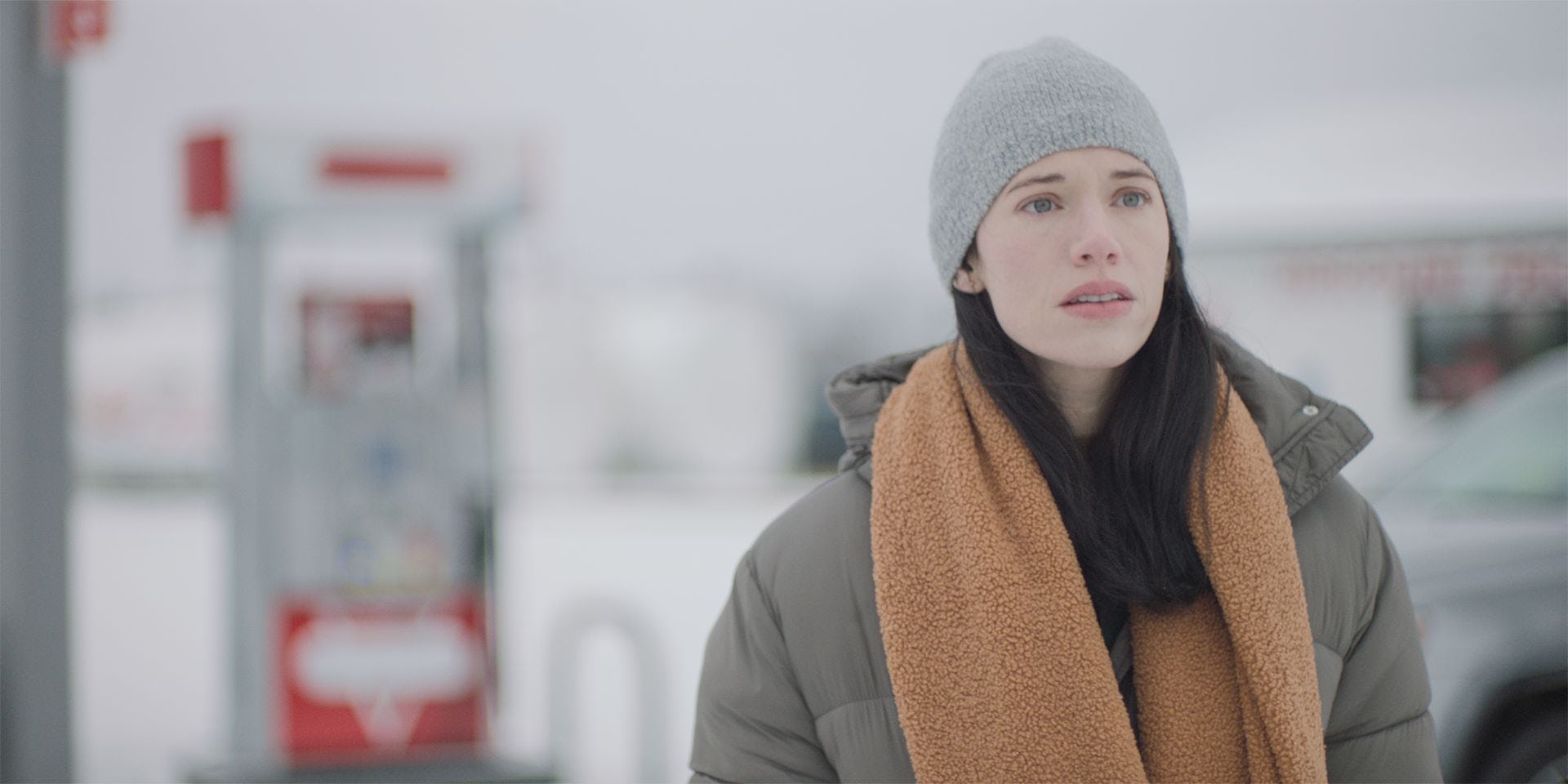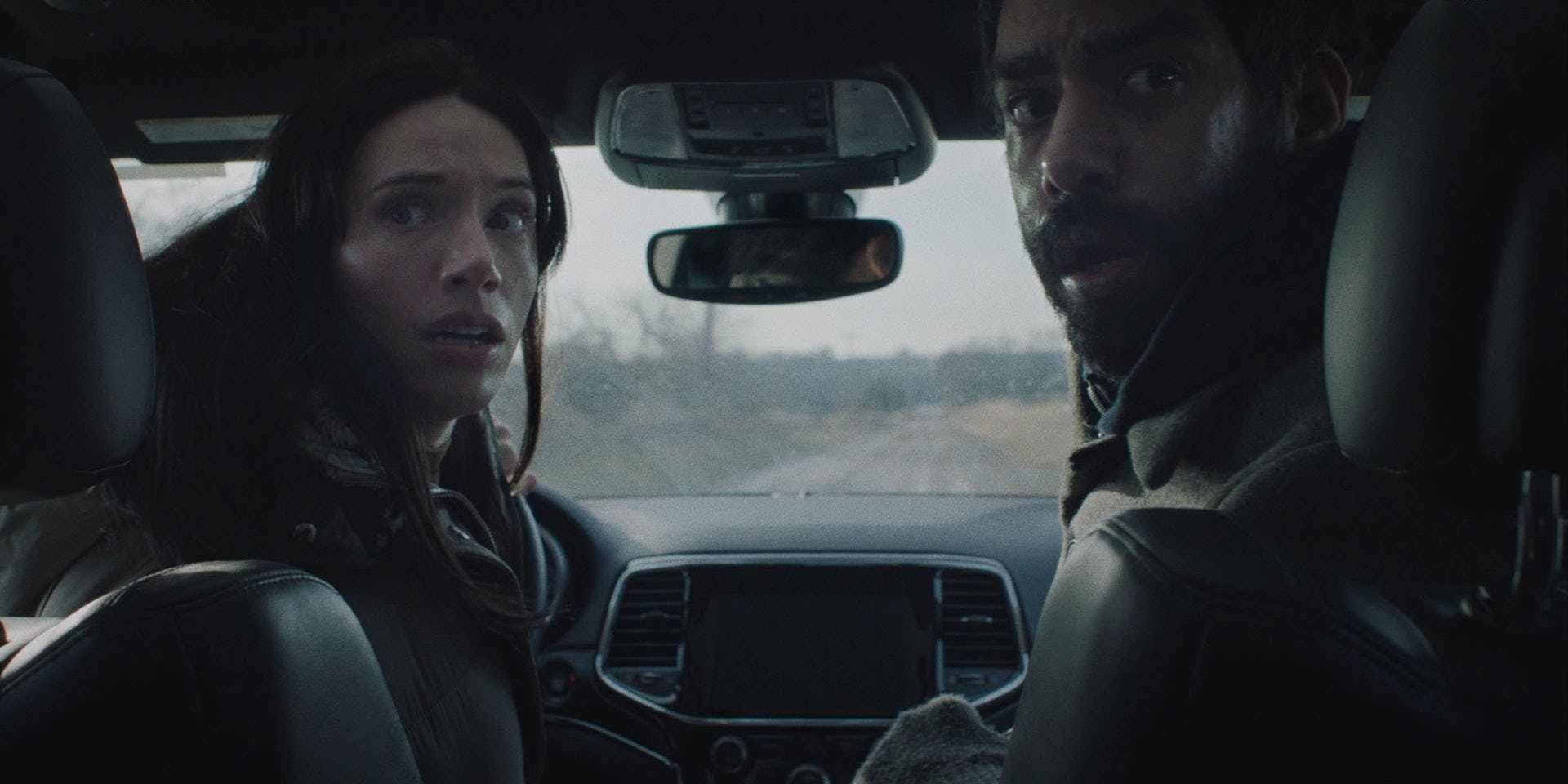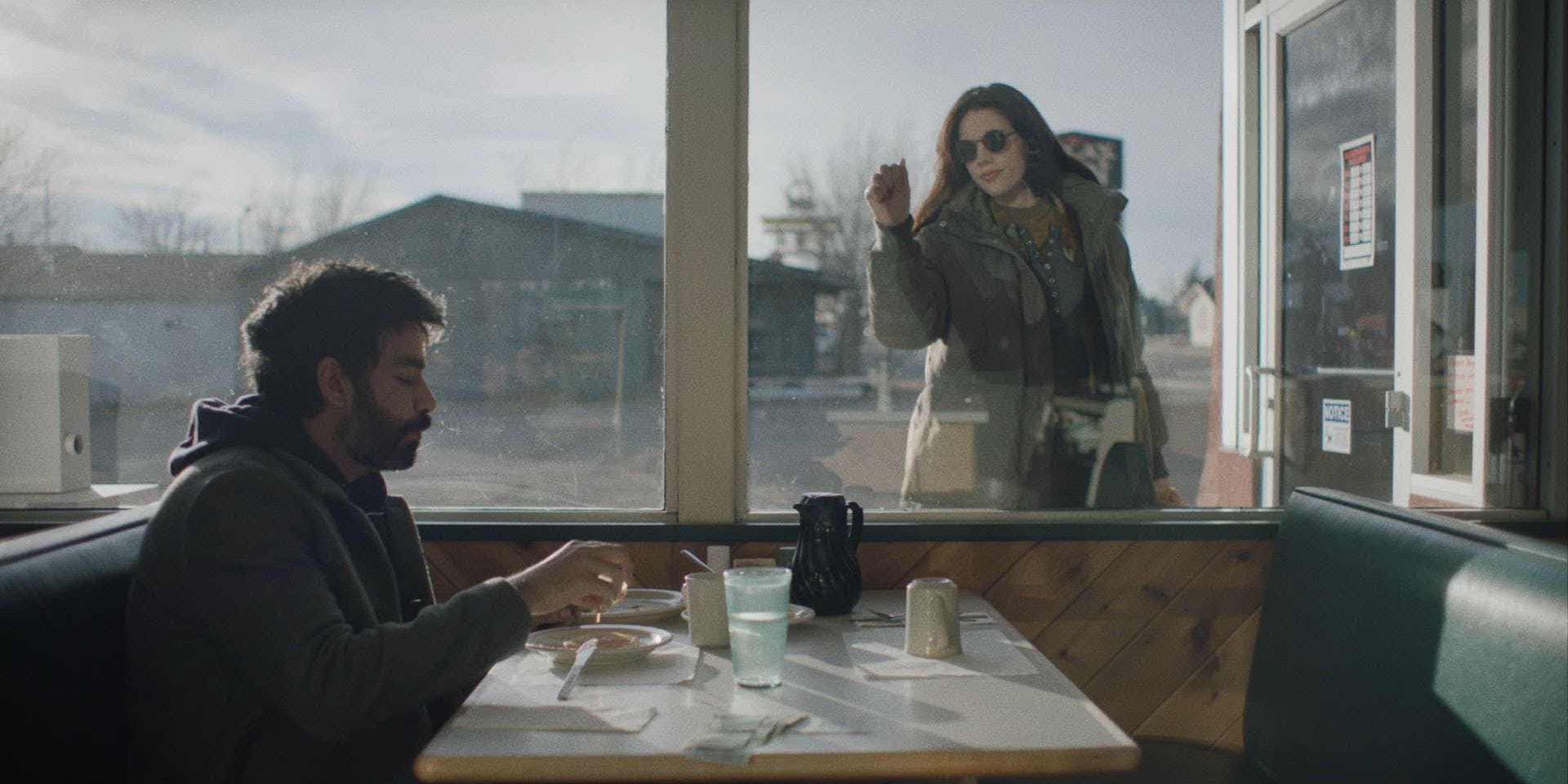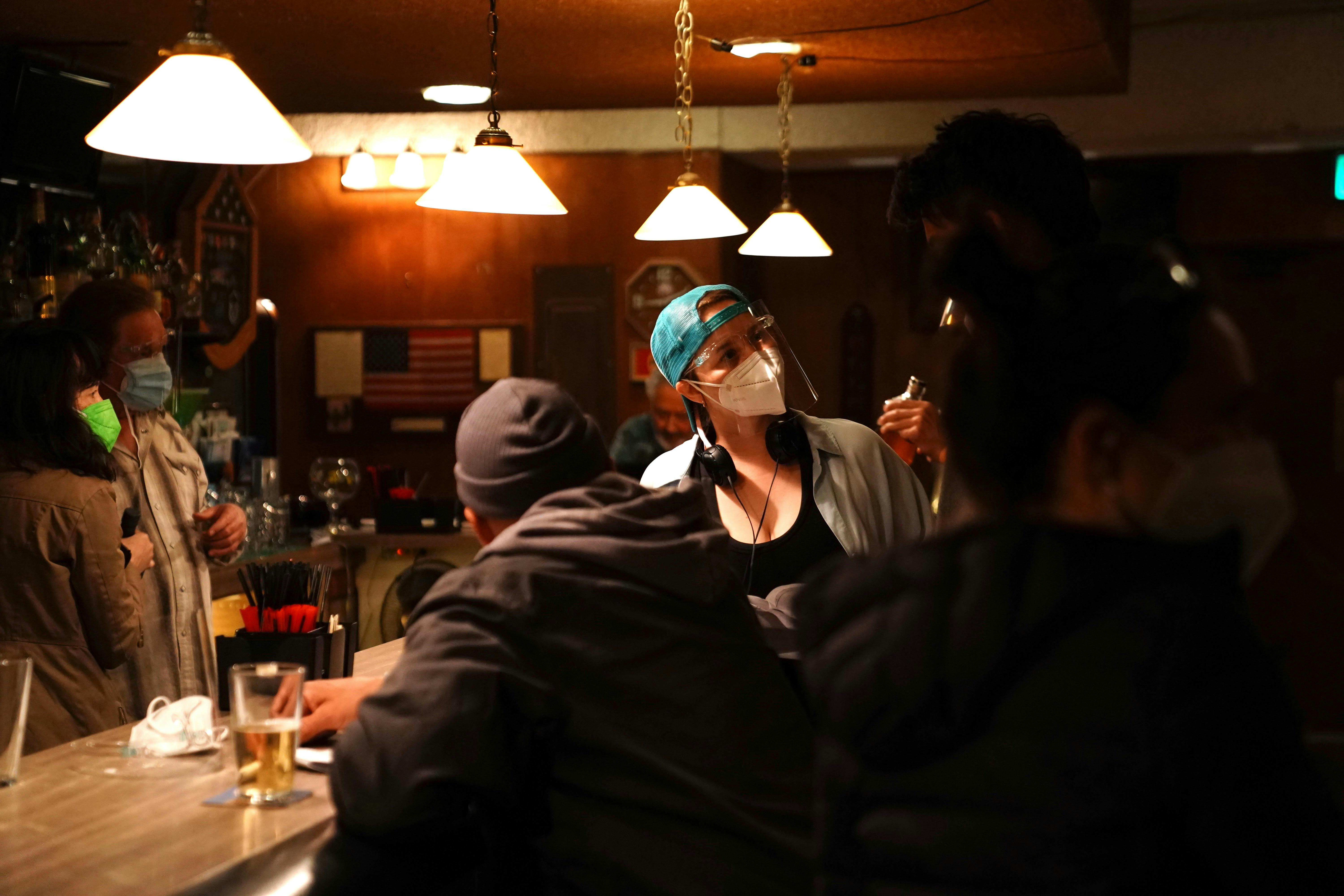
In a world where ghosts are real, who you gonna call? In Next Exit, you make a medical appointment.
In writer-director Mali Elfman’s first feature film, the afterlife is real, and humanity is taking its first steps towards understanding it scientifically. A controversial study in San Francisco, where participants die painlessly to assist in the research, attracts two New Yorkers ready to pass on without shame or the responsibility of doing it themselves. They embark on their first and last cross-country road trip, but not before learning more about each other along the way.
Conceived by Elfman over a decade ago amid personal turmoil, and filmed during the pandemic, Next Exit made its debut at the 2022 Tribeca Film Festival. It was celebrated by critics for its genre-bending premise, touching portrait of desperation and loneliness, and standout performances by leads Katie Parker (The Haunting of Bly Manor) and Rahul Kohli (iZombie).
On the film’s origins years ago, Elfman tells Inverse: “I got divorced.” Don’t worry, she says it was “wonderful.”
“Anytime I’ve gone through something I didn’t know how to deal with, I’ve returned to this [script],” Elfman says. “Whenever there was something bad in my life, these two characters were there for me. This script has gone through so many iterations, but the characters always brought me back and gave me hope I needed.”
While Next Exit went through many drafts, the premise remained intact: An isolating road trip during a moment of worldwide change and confusion. Before Covid-19, the idea sounded far-fetched. “I pitched this idea so many times and everybody’s like, ‘That doesn’t happen.’ And then Covid happened. I was like, ‘See? It does happen!’” Elfman says. “One thing changes and everybody reacts in a different way, in ways you can’t anticipate.”
“I didn't do well at the start of Covid,” says Elfman, who developed shingles due to stress. “I needed to find hope because the world made no sense. The world continues to make no sense. I needed to find something within all the darkness.”
The film’s leads, Kohli and Parker, play Teddy and Rose. Both get on each other’s nerves when they meet, but their time together smooths things over. In some ways, Kohli and Parker’s experience entering Next Exit was like what their characters go through.
“I had a lot of questions, specifically about the world,” Katie Parker tells Inverse. “I was very focused on, like, ‘What is this world?’ It wasn’t until Mali made the point about how, when one [huge change] happens, that informs your choices.”
Personally cast by Elfman to play the sardonic, guilt-ridden Rose, Parker admits she found connecting difficult. “I found her to be hard,” she says. “I just had to look inside myself and look at my own stuff to find a way into her. I also found her working through Rahul. His process complimented mine. I was able to find her through him.”
Parker summarizes the two simply: “Rose wants a way out, and I think Teddy wants a way in.”

In contrast to Rose, whose unhappiness and dissatisfaction with how life shook out for her are driving her towards death, Teddy hopes to find immortality in death.
“Teddy is doing everything for all the wrong reasons,” Kohli says to Inverse.
Given the script during the filming of another series, Kohli says he fell in love with Next Exit over a weekend. Elfman rewrote the part for him specifically after watching his work in The Haunting of Bly Manor.
“The first thing that struck me was how charming it was,” Kohli says, “I thought it was smart, the idea of an afterlife and opting out. That changes what we do. We operate out of fear, right? A lot of our work and personality come from fear, and that fear is death. How do we behave when that element’s removed? How do we change when there’s no consequences?”
Kohli also resonated with Teddy for the counterweight it offered to his more well-known performances in TV comedies, like iZombie, and what he’s previously described as a Clint Eastwood homage in Midnight Mass. The latter role, Kohli says, was “so meticulous in terms of prep” to nail a northeast American accent (Kohli is British).
“There was no ad-libbing for me because I have to get the accent. Then this role comes along, and it's asking to do the opposite, which is to be free, to be spontaneous. It was so appealing.”

In 2020, Covid-19 put everyday life behind closed doors. Next Exit was one of the rare productions to move forward in lockdown, and one of fewer to not be a billion-dollar blockbuster. It helped that the movie’s story meant wide open spaces and few extras.
“It was a fun break for me,” Kohli jokes, “That was the least amount of people I’d been around.”
Elfman says a “godsend” investor arranged travel via private jet, which gave the crew a taste of “ridiculous” luxury. Arriving in Kansas City was a rude awakening.
“It was a harsh change,” says a laughing Elfman. “Once we were there and got tested, you’re on the road. We had five minivans all the way through Oklahoma, Texas, New Mexico, Arizona. Everything is chaos, but you start to feel safe around one another.”

Next Exit is a journey worth embarking on. No matter how much the world fails to make sense, the connections forged with others can offer clarity.
“Depression, in my experience, makes you narcissistic,” says Elfman. “You can get in your own way. Whenever I’ve been in a situation I couldn’t find my way through, it has been through connections with other people, and often not ones I’m expecting to have. Some are calling [Next Exit] a romance. I don’t know I would. I think these people needed each other in this moment. They were there for one another, and that’s the most important thing.”
Elfman highlights a line spoken by Rose, where she says she doesn’t want to hurt anymore. “I don’t think it's wanting to die,” Elfman says, “I think it’s about not knowing how to exist.”







